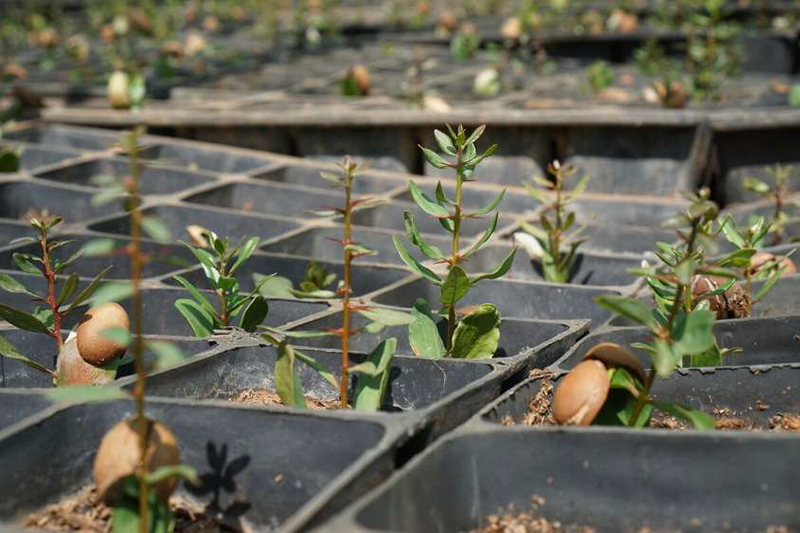現地の声:国際機関報告
2017.6.14

Credit: Angeli Mendoza/GCF
| 案件名 | 劣化した環境におけるアルガン果樹園の開発 (FP022) |
|---|---|
| 資金提供実施者 | Agency for Agricultural Development of Morocco |
| 投融資規模 | 49.2百万米ドル、うちGCF分39.3百万米ドル |
| 概要 | 地域住民参加と非伝統的な土地利用で2千ヘクタールの薬効芳香性植物の間作を含む1万ヘクタールのアルガンの木を栽培し、バリューチェーンを一体化した新たな総合農業モデルづくりに成功した南モロッコの事例。 |
| マクロ情報 (2022年) |
GDP(百万米ドル) : 130,952 人口(百万人) : 36.67 1人あたりGDP : 3,571.09 |
| 関連資料 | https://www.greenclimate.fund/project/fp022 |
Planting revenue-producing trees against desertification and co-managing a forest biosphere and heritage through community participation in Morocco
Partner: Agency for Agricultural Development of Morocco (ADA)
GCF financing: USD 39.3m
Total financing: USD 49.2m
This project backed by the Green Climate Fund (GCF) aims to develop a new integrated model of alternative landscape use, value chain integration, and community participation to farm argan trees on 10,000 hectares, including 2,000 hectares of intercropped medicinal aromatic plants, in southern Morocco.
The results have contributed to natural preservation and are socially and economically benefiting over 26,000 people in local communities. It successfully domesticated argan trees on marginal lands and is helping to defend the argan tree biosphere and forest from desertification. Preserving this biodiversity ensures increased resilience of the whole ecosystem and populations living off the land.
The project covers the full argan value chain and will considerably increase local revenues once the trees are mature. Argan oil is a high-value commodity with international demand, used for different food and cosmetic products. The project also developed model contracts for argan tree plantations with agricultural and other services, including for private investments, helping businesses become more sustainable. Benefits cut across mitigation and adaptation, and a third of the individuals targeted are women.
The project faced many technical difficulties and social resistance from those more interested in raising goats, livestock grazing and other uses of common grounds. Extensive capacity-building helped improve public perception of the project and facilitate co-management of the argan biosphere by local communities, civil society organizations and forest services. The project established conflict resolution mechanisms and invited national NGOs to engage with local stakeholders in their own languages and participate in project monitoring and evaluation.
GCF-funded activities totaled USD 49 million, with national and regional entities co-financing USD 9.9 million. To promote scaling-up, the project invested in research to improve the stock of climate-resilient argan tree varieties. Morocco has signaled an interest using local and national public contributions to scale up the project.

